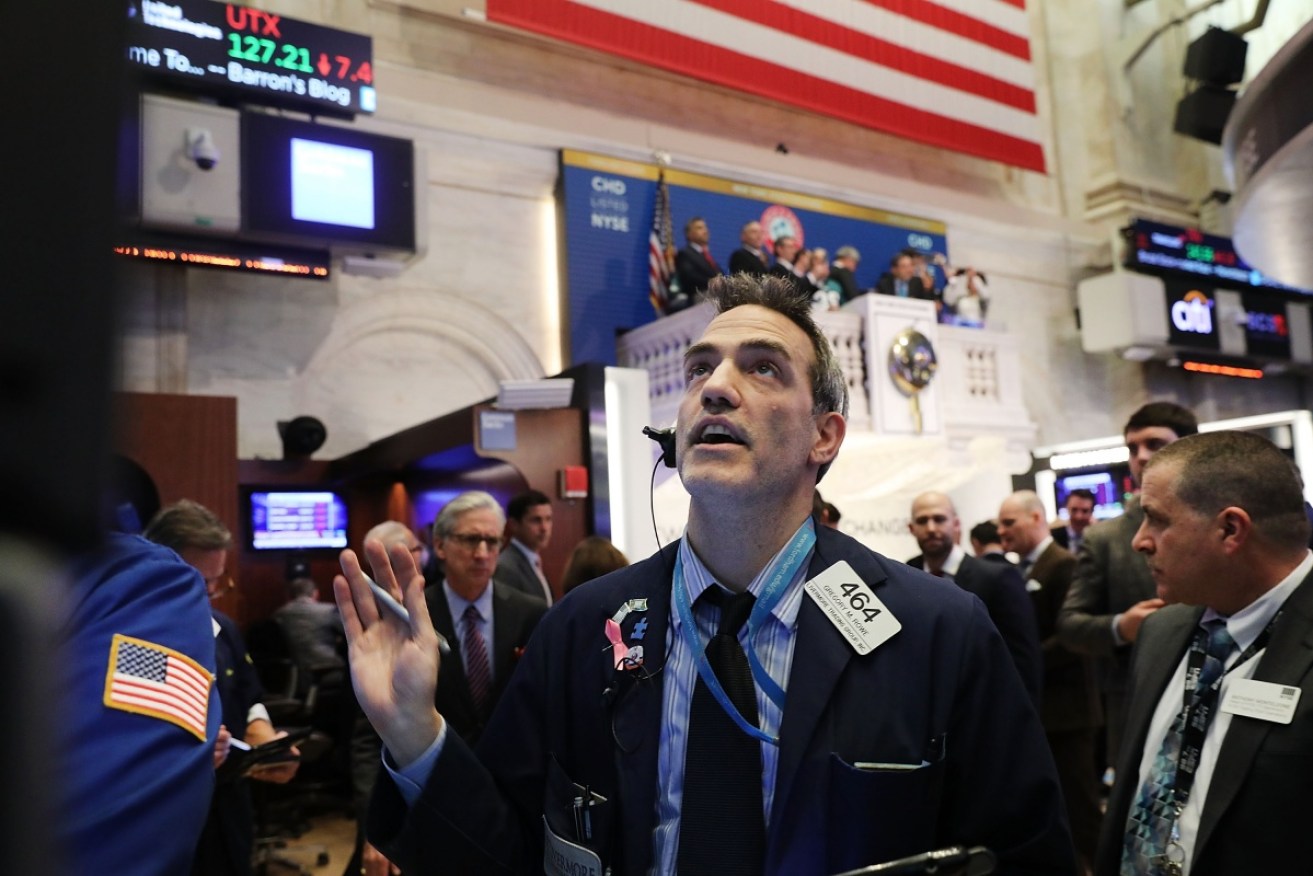Australian market bloodbath after Wall Street record drop

The rebound ended six days of losses in global markets. Photo: Getty
The Australian share market has followed Wall Street’s negative cue and is $57 billion poorer this morning.
After the Dow Jones suffered its biggest points drop in a single day (1175 points) and ASX futures fell 2.8 per cent, it was inevitable that the local bourse would open sharply lower.
The benchmark ASX 200 index fell 3 per cent to 5845 points (at 11:15am AEDT), with every stock posting losses.
The broader All Ordinaries index dropped by 3 per cent to 5944.
This is a continuation of yesterday’s steep losses, when the Australian share market plunged by $30 billion.
So far, the local stock market has sunk by $87 billion in two days.
Which stocks were hit hardest?
Every sector on the ASX 200 has been impacted, with the worst performers being energy (down 4 per cent), technology (-3.9 per cent) and consumer cyclicals (-3.3 per cent).
The sector with the least losses was industrials, down by 2.4 per cent.
The energy sector’s big names have fallen sharply, with Santos, Origin Energy and Woodside Petroleum down by 4.7, 4.5 and 3.5 per cent respectively.
BHP and Rio Tinto are the biggest drags on the mining sector, falling by 2.6 and 1.8 per cent.
All the big four banks are being sold off – Commonwealth Bank (-2.3 per cent), Westpac (-3.1 per cent), NAB (-2.3 per cent) and ANZ (-2.4 per cent).
The Australian dollar has fallen to 78.77 US cents.
Since Friday, the US Dow Jones has plunged by more than 1700 points in two trading days.
US stocks are continuing to be dragged down by a fast rise in interest rates, with US 10-year bond yields reaching a four-year high.
The broader S&P 500 also tumbled 4.1 per cent to 2649, and the Nasdaq fell 3.8 per cent to 6967.
Brent crude has fallen to $US67.50 dollars a barrel.
The big banks Citigroup, Goldman Sachs and Bank of America dropped by up to 2.5 per cent each.
The White House said through a spokesman that “markets do fluctuate in the short term,” but it stressed that the fundamentals of the US economy remained strong.
Reserve Bank board meets
Today is also a big day for local economic news.
The Reserve Bank board will meet today, and most likely keep interest rates on hold at the record low 1.5 per cent.
Also, the Bureau of Statistics released its latest retail and international trade figures.
Retail spending fell 0.5 per cent in December, lagging market expectations of a 0.2 per cent decline.
Seasonally adjusted retail spending totalled $26.2 billion in the month.
Household goods retailing fell 2.6 per cent, clothing, footwear and personal accessory sales fell 0.1 per cent, while department store sales were down 0.6 per cent.
The Australian dollar has fallen from 78.85 US cents ahead of the 1130 AEDT data release to 78.67 US cents at 1146 AEDT.
Morrison: market dive is a recalibration
Treasurer Scott Morrison said the US stock market dive is a recalibration associated with recent economic data.
Mr Morrison told reporters in Canberra the market was reacting to last week’s US wage data and more bullish sentiment about what’s happening with inflation and its impact on bond markets.
“Markets are volatile – when they recalibrate in relation to events like this you do see a bit of these events happening,” he said.
“But people who watch these markets more and participate in them more closely than I do, I think, will see this for what it is and understand the forces behind it.”








